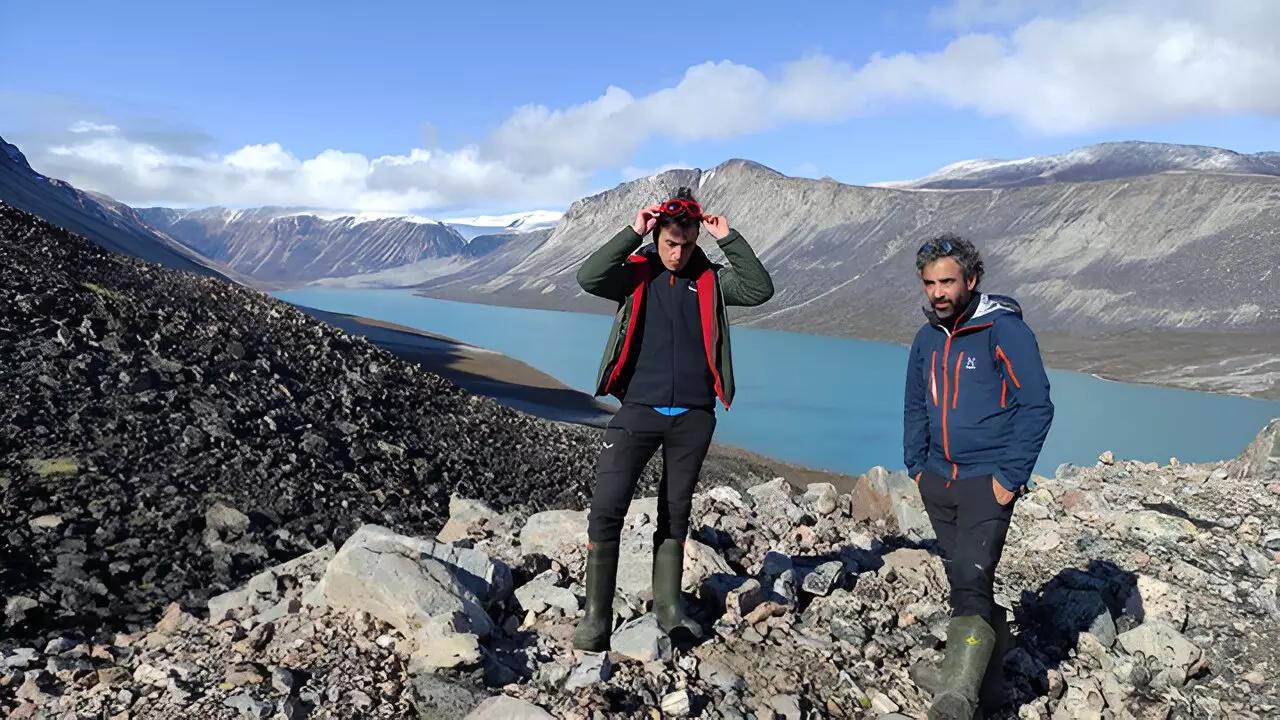Recent scientific studies have underscored a critical environmental crisis: the rapid melting of Greenland’s ice sheet, exacerbated by climate change. This alarming trend is not merely an Arctic issue; it carries significant global ramifications, including alterations to climate patterns in Europe. The research, spearheaded by a team from the University of Barcelona, highlights a phenomenon that has escalated dramatically over the past few decades, compelling us to confront the dire implications of our changing planet.
Understanding Extreme Melting Episodes
According to the study published in the Journal of Climate, episodes of extreme melting in Greenland have surged, reportedly doubling in frequency during summers since the mid-20th century when compared to the period from 1950 to 1990. The figures are staggering—one of the peak years occurred in 2012, when an astonishing 610 gigatons of ice melted, equivalent to more than 240 million Olympic-sized swimming pools. Such immense losses are not merely statistics; they represent a significant alteration to the Earth’s cryosphere and provide a stark warning of ongoing environmental changes.
The researchers employed a comprehensive analysis of extreme melting events from 1950 to 2022 and discovered that the last decade alone has yielded several peak years of ice melt. The average yearly melting from 1980 to 2010 reached around 300 gigatons, underscoring how consistently Greenland has been under extreme stress due to increasing global temperatures.
The Link Between Climate Change and Ice Melt
A spine-chilling revelation from the study is how climate change directly correlates with accelerated ice melt in Greenland. The Arctic region is currently warming at an alarming rate, approximately four times higher than the global average—a pressing indicator of the impact of greenhouse gases. The researchers noted that the increased episodes of severe warmth are attributed to persistent anticyclonic air masses carrying warmer and wetter conditions from northern latitudes.
As a result, Greenland has become trapped in a cycle where stagnant air during summer facilitates greater solar radiation absorption, while simultaneously diminishing the albedo effect of snow and ice. The outcome is a self-perpetuating loop that exacerbates warming and further intensifies melting.
The implications of these climatic changes extend beyond surface melting. Researchers observed that higher elevations of the ice cap—previously stable since 1950—are now succumbing to melting. This distressing development has led to the emergence of cracks and structural instabilities within the ice sheet itself, raising concerns about the potential for large icebergs to calve off into the ocean. The frightening notion of significant portions of the ice shelf breaking away increases the peril posed not only to local ecosystems but also to global sea levels.
The ramifications of Greenland’s melting ice extend far beyond its immediate geographic region. The contributions to sea-level rise are substantial, with significant repercussions for populous coastal areas worldwide. Furthermore, the alterations in atmospheric circulation resulting from Greenland’s ice loss may affect weather patterns across Europe, leading to increased climate extremes that can disrupt socio-economic stability and ecological systems.
Studies predict that the frequency and severity of extreme melting episodes will continue to rise unless concerted global efforts are undertaken to reduce greenhouse gas emissions. The research emphasizes the urgency of addressing climate change to mitigate its far-reaching effects. The interdependence of climate systems highlights how choices made today will resonate through time, impacting generations to come.
Conclusion: A Call to Action
The study conducted by the University of Barcelona offers a cautionary tale about the precarious future we face if current trends continue unchecked. Greenland’s melting is a clarion call for immediate action; detailing the stark truth that climate change is an omnipresent threat with global implications. The escalating loss of glacial ice not only endangers the Arctic region but is a harbinger of challenges awaiting us all, stressing the vital need for international cooperation in combating climate change. If we fail to act decisively and collectively, the future of our planet hangs in the balance.


Leave a Reply